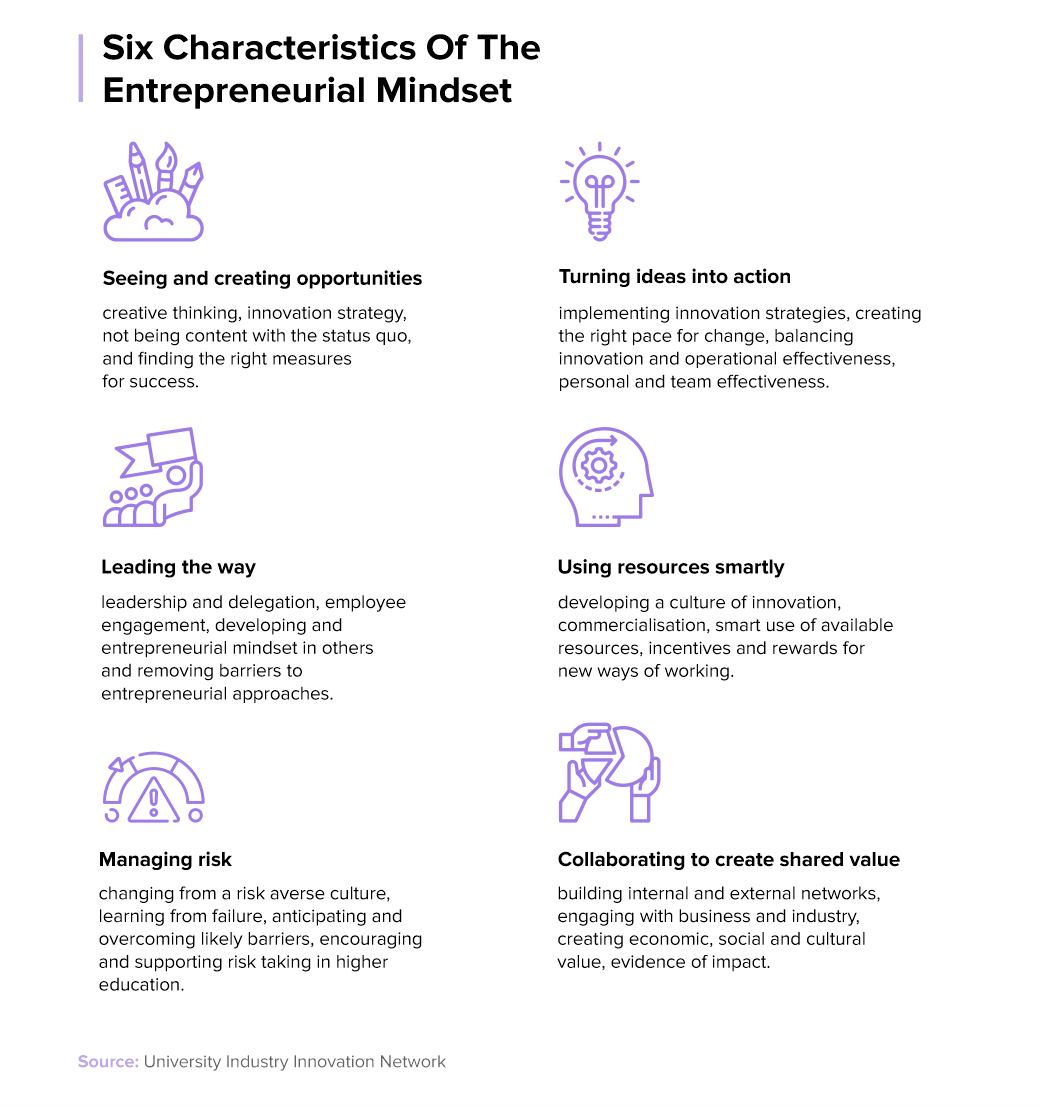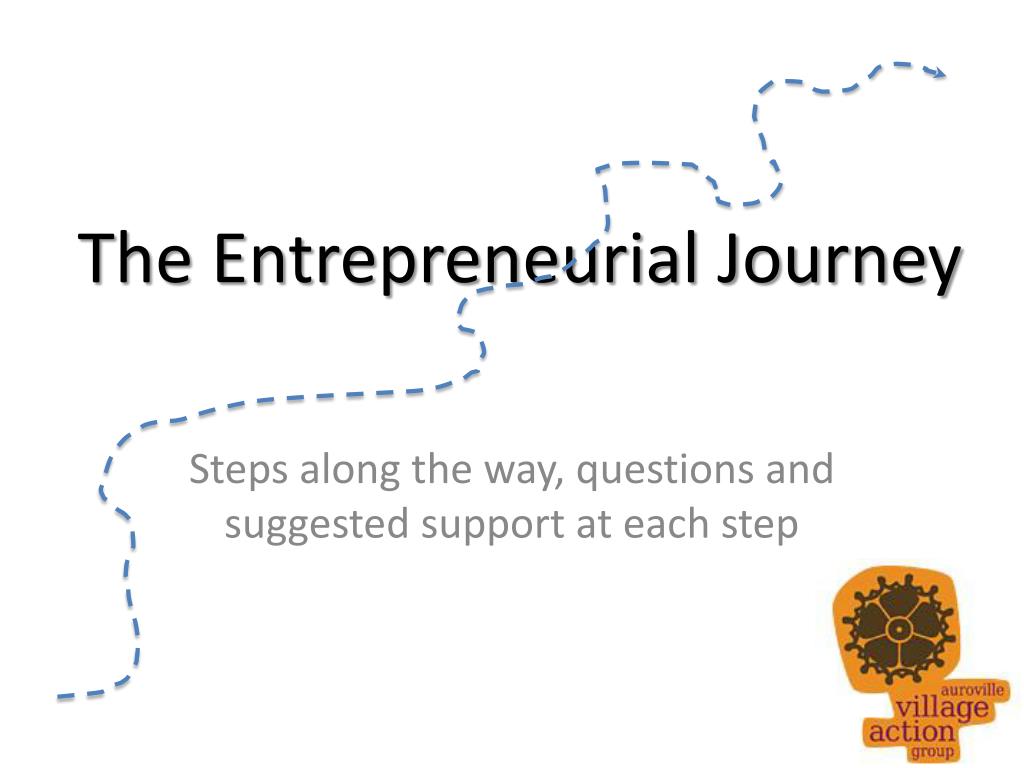The Entrepreneurial Mindset: Embracing Opportunities in a Complex World

Entrepreneurship is more than merely starting a business; it’s a dynamic mindset that thrives on opportunity and innovation. In today’s fast-paced world, thinking like an entrepreneur means actively seeking out and seizing chances to create, improve, and solve problems. This involves a shift from a reactive mindset to a proactive one, where individuals identify gaps in the market and respond with innovative solutions. Entrepreneurs set themselves apart from traditional employees by their unique approach to problem-solving and their ability to navigate challenges with creativity and determination. The entrepreneurial mindset fosters resilience and adaptability, qualities essential for thriving in an ever-changing environment. By embracing this way of thinking, individuals can transform everyday challenges into opportunities for growth and success. It’s about finding new paths and possibilities, which can lead to personal fulfillment and professional achievement. In this blog, we will explore various facets of the entrepreneurial mindset, from opportunity recognition to navigating risk and leveraging technology, ultimately encouraging readers to embrace their own entrepreneurial journeys.
The Importance of Opportunity Recognition
Identifying opportunities is a critical skill for any aspiring entrepreneur. Entrepreneurs are constantly scanning their environments for unmet needs and gaps in the market. This proactive observation allows them to turn challenges into viable business ideas. For instance, a simple observation of a long wait time at a local coffee shop could inspire an entrepreneur to create a mobile ordering app that enhances customer experience and reduces wait times. Moreover, curiosity plays a vital role in opportunity recognition. Entrepreneurs often ask questions that others may overlook, seeking to understand the “why” behind existing problems. By doing so, they can uncover pain points that can be addressed with innovative solutions. Consider the success of Airbnb, which emerged from the realization that travelers desired affordable and unique lodging options. By recognizing this need, the founders transformed the hospitality industry, demonstrating how awareness and insight can lead to groundbreaking business ideas.

The Limitations of Traditional Education
Conventional education systems often fall short in nurturing the entrepreneurial spirit. Most colleges emphasize academic performance and employability, which can stifle creativity and discourage risk-taking. Students are frequently conditioned to prioritize grades over innovation, resulting in a risk-averse mindset that is counterproductive for aspiring entrepreneurs. This section advocates for a shift towards a more practical, hands-on approach to learning. Programs that incorporate experiential learning, such as internships and project-based courses, can significantly enhance entrepreneurial skills. By engaging with real-world challenges, students can develop critical problem-solving abilities and resilience. Additionally, fostering an environment that encourages experimentation and failure as part of the learning process can empower future entrepreneurs to become more innovative and adaptable.
Characteristics of Successful Entrepreneurs
Successful entrepreneurs often share a distinct set of characteristics that enable them to thrive in their ventures. Key traits include optimism, resilience, attention to detail, and a willingness to learn from failures. Optimism fuels their passion and drives them to pursue their goals, even in the face of challenges. Resilience allows them to bounce back from setbacks and continue moving forward. Attention to detail is essential for identifying potential pitfalls and refining business strategies. Successful entrepreneurs also understand the value of learning from failure, viewing it not as a setback but as a stepping stone to future success. Personal anecdotes from renowned entrepreneurs, such as Steve Jobs and Oprah Winfrey, illustrate how these traits have shaped their journeys. By examining their stories, aspiring entrepreneurs can gain valuable insights into the mindset required for success.
The Role of Experience in Entrepreneurship
Experience is often the best teacher for aspiring entrepreneurs. Engaging in practical experiences, such as internships, part-time jobs, or entrepreneurial ventures, allows individuals to acquire skills that traditional education may not provide. Real-world exposure helps individuals understand market dynamics, customer needs, and operational challenges. For example, a student who interns at a startup may gain firsthand experience in product development or marketing strategies, equipping them with insights that are invaluable in their future endeavors. Furthermore, entrepreneurial ventures, even small-scale ones, can cultivate a deeper understanding of business principles and enhance problem-solving abilities. This narrative emphasizes that entrepreneurship often flourishes outside the confines of traditional educational frameworks, highlighting the importance of experiential learning.
Navigating Risk and Uncertainty
Entrepreneurship is inherently tied to risk and uncertainty. However, effective entrepreneurs learn to navigate these challenges with a calculated approach. This section will outline strategies for managing fear and making informed decisions amidst uncertainty. One key strategy is conducting thorough market research to better understand potential risks and rewards. Financial planning is another critical aspect of risk management. Entrepreneurs must develop a solid financial strategy that includes budgeting, forecasting, and contingency plans. By preparing for potential obstacles, they can mitigate risks and increase their chances of success. Additionally, creating a culture of adaptability within their teams can empower entrepreneurs to pivot quickly when faced with unexpected challenges. This proactive approach to risk can lead to sustainable business growth and innovation.
Leveraging Technology and Innovation
In the digital age, technology has become a cornerstone of entrepreneurship. The internet and technological advancements provide unprecedented opportunities for entrepreneurs to innovate and expand their reach. From online marketing strategies to e-commerce platforms, technology enables entrepreneurs to connect with a global audience and streamline their operations. For instance, businesses like Shopify and Etsy have transformed how entrepreneurs sell their products, allowing individuals to set up online stores with minimal overhead. Additionally, tools such as social media and data analytics offer valuable insights into consumer behavior, enabling entrepreneurs to tailor their offerings effectively. The transformative power of innovation is evident in countless success stories, showcasing how leveraging technology can propel entrepreneurial ventures to new heights.
The Value of Networking and Community
Building a strong network is essential for entrepreneurial success. This section emphasizes the importance of collaboration and support from peers in enhancing opportunities. Networking allows entrepreneurs to share ideas, gain insights, and discover potential partners or mentors who can provide guidance and resources. Engaging with a community of like-minded individuals fosters a culture of entrepreneurship and innovation. Participation in local entrepreneurial events, online forums, and mentorship programs can significantly enrich an entrepreneur’s experience. By surrounding themselves with supportive networks, individuals can enhance their creativity, gain valuable feedback, and find encouragement during challenging times. Ultimately, the power of community can elevate an entrepreneur’s journey, leading to greater success and fulfillment.
Conclusion: Embracing the Entrepreneurial Journey
In summary, embracing an entrepreneurial mindset is crucial for navigating today’s complex world. By recognizing opportunities, cultivating essential traits, and leveraging technology, individuals can position themselves for success. The journey of entrepreneurship is not solely about starting a business; it is about fostering a mindset of optimism, resilience, and continuous learning. Aspiring entrepreneurs are encouraged to take risks, learn from failures, and actively seek out opportunities in their everyday lives. By cultivating these qualities and engaging with their communities, individuals can embark on their unique entrepreneurial journeys. As we look to the future, the possibilities are endless for those willing to embrace the entrepreneurial spirit and pursue their aspirations with passion and determination.




Comments